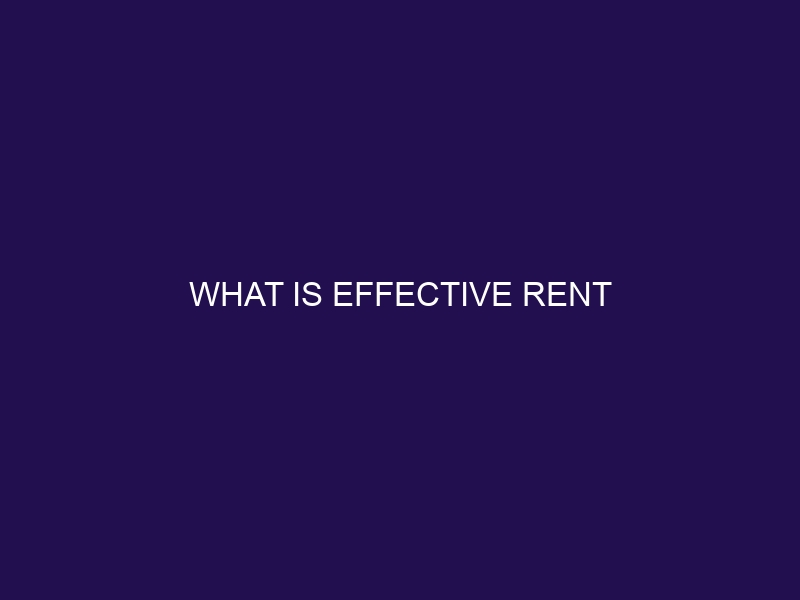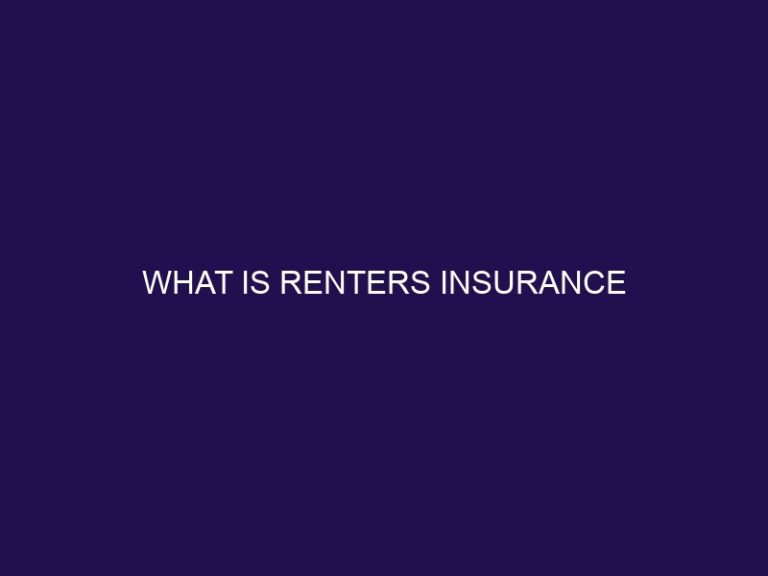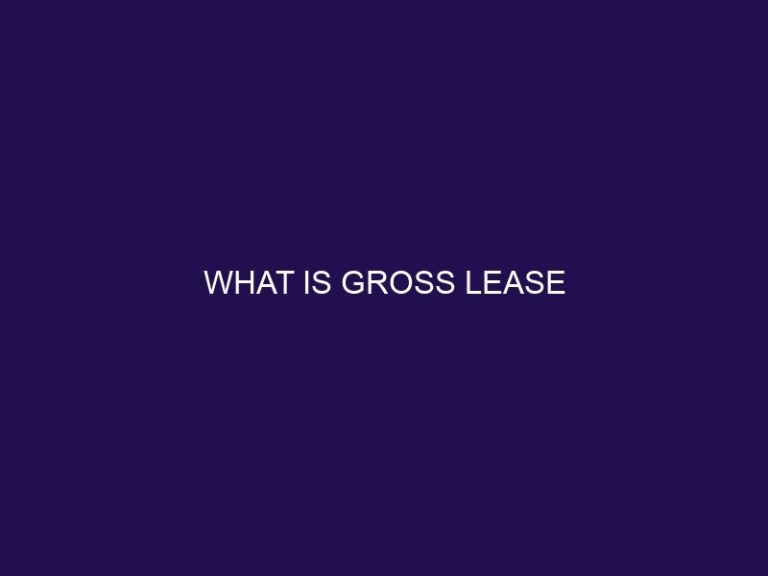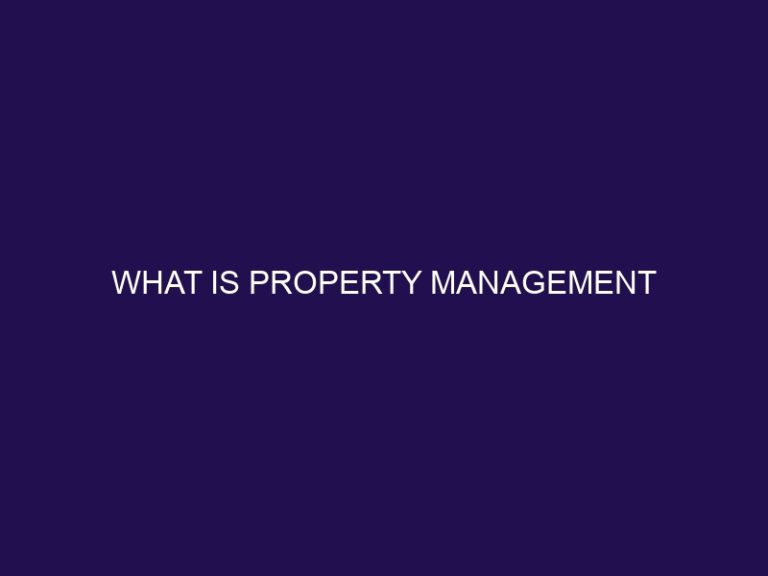What is Effective Rent
Effective rent is a crucial concept to understand when it comes to renting a property. It refers to the actual amount a tenant pays for a rental property, taking into account any incentives, concessions, or additional costs associated with the lease. By grasping the concept of effective rent, tenants can make informed decisions and effectively budget their housing expenses. Understanding how effective rent is calculated, its importance, the difference between effective rent and actual rent, and the factors that influence it, can help tenants navigate the rental market and negotiate favorable rental terms. Knowing effective rent can aid tenants in evaluating different rental options and determining the best value for their housing needs.
Understanding Effective Rent
Understanding effective rent is essential when entering into a lease agreement. It is the actual amount that a tenant will pay for a rental unit, taking into account any concessions or discounts offered. To calculate the effective rent, you subtract any concessions from the advertised rent and divide it by the lease term. For instance, if the advertised rent is $1,000 per month with one month free, the effective rent would be $833 per month. Understanding effective rent is crucial for tenants as it helps them accurately budget for their housing expenses and compare different rental options. Make sure to keep this in mind when exploring your next lease agreement.
What Does Effective Rent Mean?
What Does Effective Rent Mean?
Effective rent refers to the actual amount a tenant pays for a rental property after factoring in concessions and discounts. It is the net amount paid per month, encompassing any free rent periods or incentives received. Understanding effective rent is crucial for tenants to accurately budget and assess the true cost of renting a property. For example, if a tenant signs a lease for $1,000 per month with one month free rent, their effective rent would be $916.67 per month ($12,000 divided by 13 months).
In a similar vein, I know someone who recently rented an apartment with a lease that offered two months of free rent. At first, the advertised rent seemed relatively high, but after factoring in the concessions, the effective rent turned out to be much more affordable. This demonstrates how important it is to consider the effective rent when evaluating rental options.
What Is the Definition of Effective Rent?
Effective rent, also known as true rent, is the actual cost of renting a property taking into account various factors such as incentives, discounts, or additional expenses. It is the monthly amount that a tenant pays, considering lease terms, rent concessions, and other financial arrangements. To accurately calculate the effective rent, subtract incentives like free rent or reduced pricing from the total lease amount. This calculation provides a more precise representation of the true cost associated with renting a property. Understanding the concept of effective rent is crucial for tenants as it enables them to make well-informed decisions and effectively budget their expenses. For instance, a practical example of effective rent would involve a tenant negotiating a lower monthly rent in exchange for committing to a longer lease term.
How Is Effective Rent Calculated?
When it comes to understanding effective rent, one crucial aspect to explore is how it is calculated. In this section, we’ll uncover the factors that influence effective rent calculation and reveal the formula used to determine this important figure. Get ready to dive into the nitty-gritty details and gain a solid understanding of how effective rent is derived. So, let’s roll up our sleeves and embark on this insightful journey into the world of effective rent calculation!
Factors Affecting Effective Rent Calculation
Factors Affecting Effective Rent Calculation
Factors influencing the calculation of effective rent include the location of the property, current market conditions, and the features and amenities provided.
| Location | Market Conditions | Property Features and Amenities |
|---|---|---|
| Highly sought-after areas with convenient access to transportation and amenities generally result in higher effective rents. | The supply and demand in the rental market can have a significant impact on effective rent, as high demand often leads to increased rents. | Properties that offer desirable features and amenities, such as modern appliances, fitness facilities, or a swimming pool, can justify higher effective rents. |
Formula for Calculating Effective Rent
| Variable | Description |
|---|---|
| Effective Rent | The formula for calculating effective rent is an essential tool for both landlords and tenants in determining the true cost of renting a property. It takes into account various factors that can impact the overall cost, such as concessions, rent increases, and lease terms. By using this formula, both parties can have a clearer picture of the actual amount they will be paying over the course of their lease. This allows for more informed decision-making and can help in negotiating a fair rental agreement. |
| Gross Rent | The total rent amount before any concessions |
| Total Concessions | The sum of all discounts, incentives, or benefits offered by the landlord |
| Lease Term | The duration of the lease agreement in months |
Why Is Effective Rent Important?
Discover why understanding the concept of effective rent is crucial in the world of real estate. From unlocking key financial insights to making informed decisions, this section dives into the importance of effective rent. Uncover the multitude of benefits associated with knowing the effective rent, and gain a deeper understanding of how it can impact your financial planning and strategies. Get ready to explore the significance of effective rent and how it can shape your real estate journey.
Benefits of Knowing the Effective Rent
Knowing the benefits of understanding the effective rent of a property can provide several advantages for tenants. Here are some of the benefits:
- Financial Planning: Understanding the effective rent allows tenants to budget more accurately and plan their expenses accordingly.
- Comparison Shopping: Knowledge of effective rent helps tenants compare different rental options and choose the best value for their money.
- Negotiation Power: Being aware of the effective rent gives tenants leverage during lease negotiations, allowing them to potentially secure better rental terms.
- Decision Making: Knowing the effective rent helps tenants make informed decisions about whether a particular rental property fits their budget and meets their needs.
By understanding the benefits of knowing the effective rent, tenants can make smarter choices and have a more positive rental experience.
Effective Rent vs. Actual Rent
Effective rent and actual rent are terms used in the real estate industry to describe different aspects of rental agreements.
- Actual Rent: This is the amount of rent stated in the lease agreement between the landlord and tenant.
- Effective Rent: This takes into account any incentives or concessions offered by the landlord, such as free months of rent or reduced rent for a certain period.
- Effective rent accounts for any upfront costs, discounts, or negotiations that affect the total amount the tenant pays over the lease term.
- When comparing options, consider both the actual rent and effective rent to determine the true cost and value of a rental property.
It’s important to carefully review rental agreements and calculate the effective rent to make informed decisions and avoid any surprises or hidden costs.
What Is the Difference Between Effective Rent and Actual Rent?
What Is the Difference Between Effective Rent and Actual Rent?
The distinction between effective rent and actual rent is determined by several factors that can have an impact on the total amount paid by a tenant. While actual rent represents the agreed-upon base rent stated in the lease, effective rent considers concessions, discounts, and additional expenses related to the lease. These may encompass incentives such as rent-free periods or improvements made for the tenant. To calculate the effective rent, subtract any incentives or extra costs from the overall rent for the lease duration. It is imperative for tenants to comprehend and compare leasing options accurately by understanding the disparity between effective rent and actual rent.
Factors That Influence Effective Rent
When it comes to effective rent, there are several factors that come into play. In this section, we’ll dive into what influences the overall cost of renting a property. From the impact of location and market conditions to the significance of property features and amenities, understanding these factors is essential for both tenants and landlords alike. So, let’s unravel the intricacies of effective rent and how these elements shape the rental landscape.
Location
“Location is a crucial factor when it comes to understanding effective rent. The location of a property can significantly impact its rental value. In desirable areas with high demand, such as city centers or neighborhoods with good amenities, the effective rent is usually higher. On the other hand, properties in less desirable or remote locations may have lower effective rents. Factors like proximity to schools, public transportation, shopping centers, and job opportunities all play a role in determining the rental value of a property. When considering effective rent, it’s important to take into account the location and its impact on the rental market.”
Market Conditions
Market conditions play a pivotal role in determining the effective rent of a property. The rental market fluctuates based on various factors, including supply and demand. When market conditions are favorable, characterized by high demand and limited supply, landlords have the upper hand and can set higher rents. On the other hand, in a market that favors tenants, with low demand and abundant supply, renters possess greater negotiating power, resulting in lower effective rents. The overall economy, job market, and local housing trends are some key elements that influence market conditions. To effectively navigate these market conditions, it is crucial for tenants to stay well-informed, conduct thorough research on comparable rentals, and carefully consider lease terms before entering into negotiations.
Property Features and Amenities
- Property features and amenities are important factors to consider when choosing a rental property. Here is a list of key features and amenities to look for:
- Security: Look for properties with secure entrances, surveillance cameras, and security personnel.
- Parking: Check if the property offers designated parking spaces, covered parking, or a parking garage.
- Laundry Facilities: Consider if there are convenient laundry facilities on-site or in-unit washer and dryer.
- Gym/fitness center: Determine if the property has a well-equipped gym or fitness center.
- Outdoor Spaces: Look for properties with amenities like a pool, garden, patio, or balcony.
- Pet-friendly: If you have pets, ensure that the property allows them and offers pet-friendly amenities.
- Utilities: Find out if utilities such as water, electricity, and internet are included in the rent.
Did you know that properties with desirable features and amenities tend to have higher rental rates?
Tips for Negotiating Effective Rent
When it comes to negotiating effective rent, there are key tips that can make a significant difference in your leasing experience. By researching comparable rentals, considering lease terms, and utilizing professional help, you can increase your chances of securing a favorable rental agreement. So, buckle up and get ready to discover the strategies that can empower you to negotiate the best possible terms for your next rental.
Research Comparable Rentals
When conducting research on comparable rentals, it’s important to take into account several factors to ensure that you’re securing the best deal. Here are a few helpful tips to assist you in your search:
- Location: It’s essential to compare rentals in the same neighborhood or area in order to obtain an accurate understanding of the market.
- Rental features: Look for rentals that offer similar features, such as the number of bedrooms, bathrooms, and amenities.
- Price: Take the time to analyze the rental prices of properties that are comparable to determine whether the asking price is fair and competitive.
- Terms and conditions: Pay careful attention to the lease terms, including the duration and included utilities, as these factors can impact the overall value of the rental.
Pro-tip: While online listings can be helpful, it’s important not to solely rely on them, as some rentals may not be advertised online. Consider reaching out to local real estate agents or property management companies to explore additional rental options.
Consider Lease Terms
Consider Lease Terms when negotiating effective rent to ensure a favorable rental agreement. Research comparable rentals to assess the market value and determine if the lease terms align with your needs. Pay attention to factors such as lease duration, renewal options, and potential rent increases. Consider negotiating for favorable terms such as a longer lease duration or a fixed rent increase. It is also beneficial to utilize professional help, such as a real estate agent or attorney, to guide you through the negotiation process and ensure that lease terms are fair and favorable.
In a similar vein, it’s interesting to note the history of lease terms. In ancient Mesopotamia, clay tablets were used to record the details of lease agreements, including terms and conditions, which allowed for better planning and organization of economic activities. This early practice laid the foundation for the consideration of lease terms in securing fair and advantageous rental agreements.
Utilize Professional Help
Utilizing professional help when determining effective rent can be highly advantageous in ensuring accuracy and maximizing savings. When considering the task, follow these tips for optimal results:
- Conduct Research: Engage the services of a reputable real estate agent or property management company, known for their expertise in rental market analysis.
- Utilize Negotiation Skills: Hiring a skilled negotiator can greatly assist in securing the most favorable rental terms, lease agreements, and attractive incentives.
- Obtain Market Insights: Professionals have access to comprehensive data, enabling them to identify market trends and anticipate future changes with precision.
- Seek Legal Expertise: Real estate professionals can provide invaluable guidance on legal matters, ensuring proper compliance with local regulations and safeguarding your interests.
By utilizing professional help, you can save valuable time, receive personalized advice, and significantly increase the chances of securing a favorable rental agreement.
Frequently Asked Questions
What is Effective Rent?
Effective Rent refers to the actual rental rate that a landlord will receive after subtracting the value of concessions given to the tenant. It takes into account any discounts, incentives, or allowances provided to the tenant, providing a more accurate picture of the income the landlord can expect from a lease agreement.
What types of concessions can be included in Effective Rent?
Concessions can include things like a build-out or renovation allowance, free rent, or a moving allowance. These are additional benefits or incentives provided by the landlord to the tenant as part of the lease agreement.
How is Effective Rent calculated?
The Effective Rent is typically expressed as an average lease rate over the term of the lease. It is calculated by deducting the value of concessions from the base rental rate. For example, if a tenant signs a 5-year lease for $20/sf per year but receives a $10/sf tenant improvement allowance and five months of free rent, the effective rent would be $16.33/sf.
Why is Effective Rent important for landlords?
Effective Rent is important for landlords to understand as it gives them a more accurate picture of the income they can expect from a lease agreement. By considering the value of concessions provided to the tenant, landlords can determine the true financial impact of the lease and make informed decisions about pricing and negotiations.
Why is Effective Rent important for tenants?
Tenants should be aware of the Effective Rent as well, as it gives them a clearer understanding of the true cost of leasing a property. By considering the value of concessions and discounts when comparing different lease options, tenants can make more informed decisions about their leasing options and budgeting.
Is Effective Rent commonly used in rental listings?
Effective Rent, or net effective rent, is commonly used in landlords’ marketing materials rather than stated in the actual lease. Landlords may choose to advertise the net effective rent instead of the gross rent as it appears more attractive to potential renters. However, tenants should be aware that they may still be paying the full gross rent amount.







